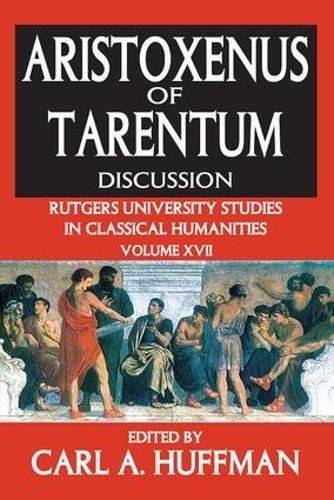

Most ebook files are in PDF format, so you can easily read them using various software such as Foxit Reader or directly on the Google Chrome browser.
Some ebook files are released by publishers in other formats such as .awz, .mobi, .epub, .fb2, etc. You may need to install specific software to read these formats on mobile/PC, such as Calibre.
Please read the tutorial at this link: https://ebookbell.com/faq
We offer FREE conversion to the popular formats you request; however, this may take some time. Therefore, right after payment, please email us, and we will try to provide the service as quickly as possible.
For some exceptional file formats or broken links (if any), please refrain from opening any disputes. Instead, email us first, and we will try to assist within a maximum of 6 hours.
EbookBell Team

5.0
30 reviewsAristoxenus of Tarentum was reported to have been bitterly disappointed when Theophrastus was chosen instead of him to succeed Aristotle as the head of the Peripatetic School. He had a truly phenomenal output of some 453 volumes, most of which survive only in fragments. He was the most famous music theorist in antiquity and came to be referred to simply as "the musician." In addition, he was a founder of Greek biography and wrote the life histories of Pythagoras, Archytas, Socrates, and Plato among others.
This volume includes eleven selections, which are almost evenly divided between his work in music theory and biography. There is a chapter on his general biographical method as well as chapters on his specific treatments of the Pythagoreans, Socrates, and Plato. There are chapters evaluating the extent to which Aristoxenus was a historian of music, his account of music therapy, his views on musical "character," the use of instruments and empiricism in his harmonic theory, and his relation to the "Neoclassical" Greek composers of the fourth century.
This volume includes: "Did Aristoxenus Write Musical History?," Andrew Barker; "Instruments and Empiricism in Aristoxenus' Elementa harmonica," David Creese; "Aristoxenus and Musical Ethos," Eleonora Rocconi; "Aristoxenus and Music Therapy: Fr. 26 Wehrli Within the Tradition on Music and Catharsis," Antonella Provenza; "Aristoxenus and the "Neoclassicists," Timothy Power; "Apollonius on Theophrastus on Aristoxenus," William W. Fortenbaugh; "Aristoxenus' Biographical Method," Stefan Schorn; "Aristoxenus and the Pythagoreans," Leonid Zhmud; "Aristoxenus' Life of Socrates," Carl A. Huffman; "Aristoxenus' Life of Plato," John Dillon; and "Aristoxenus and the Early Academy," Andrew Barker. Spanning close to three full decades, Transaction's Rutgers University Studies in Classical Humanities Series continues to pioneer in the field of classical studies.